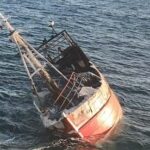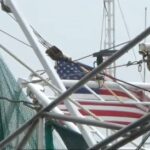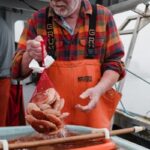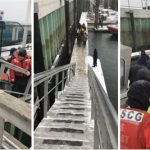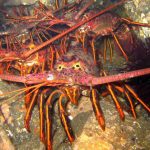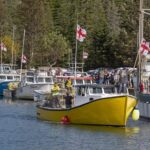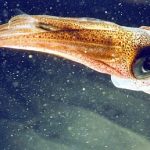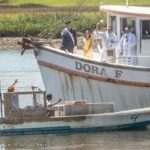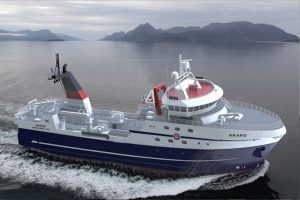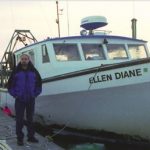Monthly Archives: June 2017
Garden State officials make their case to feds as fluke battle rages on
With New Jersey’s summer flounder fishing industry on the line, Garden State officials made their case to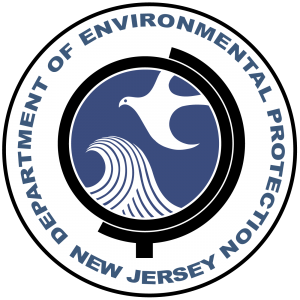 fisheries on Tuesday afternoon. In a hearing with the federal agency, New Jersey Department of Environmental Protection officials argued that the state’s regulations for summer flounder (or fluke) fishing reach conservation equivalency with new federal regulations. The cornerstone of New Jersey’s argument: That the state’s proposed regulations will actually preserve more of the summer flounder stock than the measures being put forth by the feds. Tuesday’s call was closed to the press, but in a statement following the call NJDEP spokesperson Bob Considine described it as a “good discussion.” click here to read the story 08:37
fisheries on Tuesday afternoon. In a hearing with the federal agency, New Jersey Department of Environmental Protection officials argued that the state’s regulations for summer flounder (or fluke) fishing reach conservation equivalency with new federal regulations. The cornerstone of New Jersey’s argument: That the state’s proposed regulations will actually preserve more of the summer flounder stock than the measures being put forth by the feds. Tuesday’s call was closed to the press, but in a statement following the call NJDEP spokesperson Bob Considine described it as a “good discussion.” click here to read the story 08:37
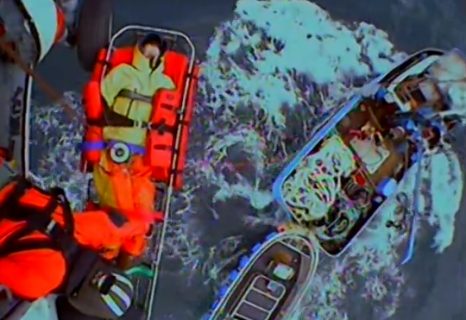
Coast Guard medevacs Fisherman man with ankle injury near Shelikof Strait, Alaska
A Coast Guard Air Station Kodiak MH-60 Jayhawk helicopter crew medevaced a 58-year-old man with an ankle injury from a fishing vessel in the vicinity of Shelikof Strait, Alaska, Sunday. The Jayhawk crew safely hoisted the man and transported him to awaiting EMS personnel in Kodiak. Watchstanders at the Coast Guard Sector Anchorage command center received a medevac request from the New Dawn crew for a crewmember with a broken ankle. Watchstanders requested the launch of the Jayhawk crew after consulting the duty flight surgeon who recommended medevac of the crewmember. Click here for video 18:06
FISH-NL questions whether province’s Federation of Labour still supports FFAW after union convicted of deceiving members
 The Federation of Independent Sea Harvesters of Newfoundland and Labrador (FISH-NL) is questioning whether the province’s Federation of Labour still stands “shoulder to shoulder” with the FFAW since the union has been convicted in court of deceiving its membership. “As federation president, Mary Shortall came out last November and took sides, condemning FISH-NL,” says Ryan Cleary, President of FISH-NL. “But Friday’s unprecedented ruling by the Court of Appeal, backing up an earlier Supreme Court of NL decision, means the FFAW broke its sacred trust with its membership.” click here to read the press release 16:03
The Federation of Independent Sea Harvesters of Newfoundland and Labrador (FISH-NL) is questioning whether the province’s Federation of Labour still stands “shoulder to shoulder” with the FFAW since the union has been convicted in court of deceiving its membership. “As federation president, Mary Shortall came out last November and took sides, condemning FISH-NL,” says Ryan Cleary, President of FISH-NL. “But Friday’s unprecedented ruling by the Court of Appeal, backing up an earlier Supreme Court of NL decision, means the FFAW broke its sacred trust with its membership.” click here to read the press release 16:03
The Bunker Resurgence: The Good News Beyond Recent Fish Kills
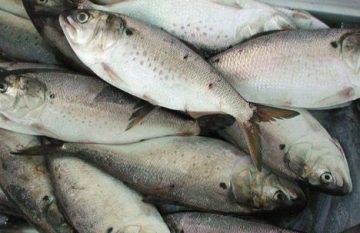 According to Megan Ware, Fishery Management Plan Coordinator of the Atlantic States Marine Fisheries Commission in Arlington, Virginia, “Results of the 2015 stock assessment indicate that the [menhaden] stock is not overfished, and overfishing is not occurring.”Joe Warren, an associate professor with the School of Marine and Atmospheric Sciences at Stony Brook University, agrees. Professor Warren’s lab uses acoustics to estimate the biomass (weight) of menhaden in the Peconic River and Flanders Bay. That’s essentially the same technology recreational fishermen employ using fishfinders.,,, Warren further observed that each of the surveys encountered anywhere from five to 25 schools that could range from hundreds to tens of thousands of fish. The professor cited anecdotal evidence that there are more bunker in New York waters as humpback whales off the Atlantic coast on the south side of Long Island have been observed feeding on bunker during the past several years. click here to read the story 15:37
According to Megan Ware, Fishery Management Plan Coordinator of the Atlantic States Marine Fisheries Commission in Arlington, Virginia, “Results of the 2015 stock assessment indicate that the [menhaden] stock is not overfished, and overfishing is not occurring.”Joe Warren, an associate professor with the School of Marine and Atmospheric Sciences at Stony Brook University, agrees. Professor Warren’s lab uses acoustics to estimate the biomass (weight) of menhaden in the Peconic River and Flanders Bay. That’s essentially the same technology recreational fishermen employ using fishfinders.,,, Warren further observed that each of the surveys encountered anywhere from five to 25 schools that could range from hundreds to tens of thousands of fish. The professor cited anecdotal evidence that there are more bunker in New York waters as humpback whales off the Atlantic coast on the south side of Long Island have been observed feeding on bunker during the past several years. click here to read the story 15:37
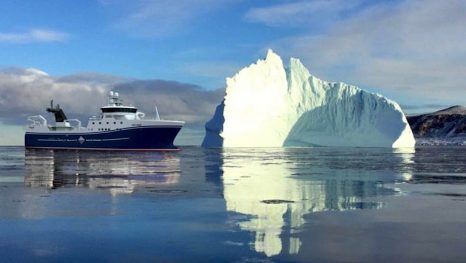
Nunavut’s Baffin Fisheries signs deal for new trawler
Baffin Fisheries, the largest shrimp harvester in Canada’s North, plans to add another vessel to its existing fleet of four. That intent was announced June 16 when the Inuit-owned Nunavut company said it had signed a letter of intent with Norway’s Havyard Ship Technology for the design and construction of a new Arctic trawler to fish cold water turbot and shrimp in the Arctic Ocean adjacent to Nunavut. The vessel under consideration is 75 metres long and 17 m wide, with a capacity to hold up to 1,200 tonnes—nearly double the capacity of the largest vessel currently operating in Nunavut. click here to read the story 14:40
New Jersey man convicted of attempted murder in fish boat shooting case – faces life in prison
 A man who shot a Whitesboro woman aboard a fishing vessel docked at Lund’s Fisheries in October 2015 has been convicted of attempted murder, Cape May County Prosecutor Robert L. Taylor said. Ernest P. Davis, 44, also was convicted of possession of a firearm for an unlawful purpose and hindering his own prosecution following a one-week trial in Cape May County Superior Court, Taylor said. On Oct. 3, 2015, Davis shot Doris Howell, 39, with a shotgun while aboard the fishing vessel “Storm,” which was docked in Lower Township. As a result of the shooting, Howell’s left foot and part of her calf were amputated, Taylor said. Taylor said due to the charges and Davis’s criminal history, he faces a maximum of life imprisonment with an 85 percent parole disqualifier. click here to read the story 12:22
A man who shot a Whitesboro woman aboard a fishing vessel docked at Lund’s Fisheries in October 2015 has been convicted of attempted murder, Cape May County Prosecutor Robert L. Taylor said. Ernest P. Davis, 44, also was convicted of possession of a firearm for an unlawful purpose and hindering his own prosecution following a one-week trial in Cape May County Superior Court, Taylor said. On Oct. 3, 2015, Davis shot Doris Howell, 39, with a shotgun while aboard the fishing vessel “Storm,” which was docked in Lower Township. As a result of the shooting, Howell’s left foot and part of her calf were amputated, Taylor said. Taylor said due to the charges and Davis’s criminal history, he faces a maximum of life imprisonment with an 85 percent parole disqualifier. click here to read the story 12:22
Chris Oliver Appointed to Lead NOAA Fisheries
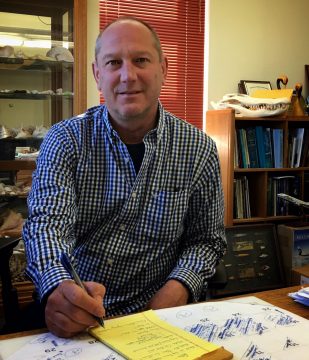 Today, Secretary of Commerce Wilbur Ross, with concurrence from the White House, named Chris Oliver Assistant Administrator for NOAA Fisheries. The Texas native assumed his new position on June 19, taking the helm from Acting Assistant Administrator Samuel Rauch who will return to his position as the Deputy Assistant Administrator for Regulatory Programs.,,, Oliver most recently served as Executive Director of the North Pacific Fishery Management Council, a position he held for the past 16 years. He has been with the Council since 1990, also serving as a fisheries biologist and then deputy director. During his tenure as executive director he led the way on several cutting edge management initiatives, including development of limited access privilege programs and fishery cooperatives and catch share programs, the North Pacific’s comprehensive onboard observer program, numerous bycatch reduction programs, extensive habitat protection measures, commercial and recreational allocation programs, and coastal community development programs. He was also responsible for all administrative and operational aspects of the Council process, and lead staffer for legislative and international issues. click here to read the press release 11:32
Today, Secretary of Commerce Wilbur Ross, with concurrence from the White House, named Chris Oliver Assistant Administrator for NOAA Fisheries. The Texas native assumed his new position on June 19, taking the helm from Acting Assistant Administrator Samuel Rauch who will return to his position as the Deputy Assistant Administrator for Regulatory Programs.,,, Oliver most recently served as Executive Director of the North Pacific Fishery Management Council, a position he held for the past 16 years. He has been with the Council since 1990, also serving as a fisheries biologist and then deputy director. During his tenure as executive director he led the way on several cutting edge management initiatives, including development of limited access privilege programs and fishery cooperatives and catch share programs, the North Pacific’s comprehensive onboard observer program, numerous bycatch reduction programs, extensive habitat protection measures, commercial and recreational allocation programs, and coastal community development programs. He was also responsible for all administrative and operational aspects of the Council process, and lead staffer for legislative and international issues. click here to read the press release 11:32
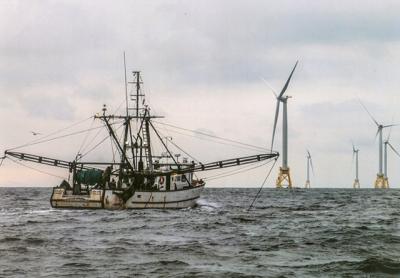
Offshore Wind Faces Stiff Test From Hurricanes
As new offshore wind farms are built off the Northeast coast, a new report suggests that the current models of wind turbines may not withstand the most powerful of hurricanes. The study, by the University of Colorado Boulder, the National Center for Atmospheric Research and the U.S. Department of Energy, is intended to help the budding offshore wind industry as it expands into hurricane-prone regions, such as the East Coast. “We wanted to understand the worst-case scenario for offshore wind turbines, and for hurricanes, that’s a Category 5,” said Rochelle Worsnop, lead author and a graduate researcher in the University of Colorado’s Department of Atmospheric and Oceanic Sciences (ATOC). click here to read the story 10:58
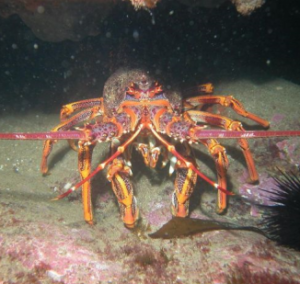
Rock lobster ‘resilience’ to climate change promising, but future not assured
The southern rock lobster is showing resistance to the effects of climate change, Tasmanian researchers have found, but warn that does not mean the species is immune to future environmental perils. The study, which reported on findings taken over a 25-year period, investigated the environmental aspects that influence the species’ settlement across a range of Australian locations, and found the fishery as a whole is showing broad resilience to changing ocean currents, water temperatures, swell and wind patterns. The research compared monthly records of the number of juvenile lobsters surviving in the open ocean and returning to shore. Institute for Marine and Antarctic Studies’ (IMAS) Professor Caleb Gardner said there were a number of factors found to affect the juvenile lobster populations, but those that were significant in one area were often completely different to those in another. click here to read the story 10:19
Q&A – Dion Dakins on the hunting and eating of seal in Canada
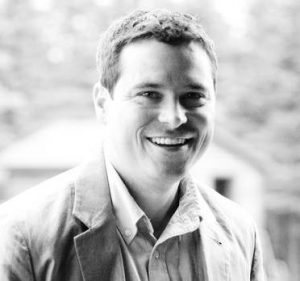 Seal: Too Cute to Eat? That’s the name of a panel that took place at the Terroir culinary summit late last month in Toronto, and a question that makes Dion Dakins chuckle. Dakins is the chief executive of Carino Processing Ltd. in Newfoundland, which processed 55,000 animals for meat, oil and hides in the past sealing season. For him, the question gets to the core of the seal debate. He believes hunting seal is sustainable, humane and a necessary fisheries ecomanagement tool. Opposing him are animal-rights groups (most of them based outside Canada) that have spun the “cute” element into a disproportionate fundraising tool.,,, You say if seals aren’t harvested, they’ll have to be culled. Can you explain? click here to read the story 09:29
Seal: Too Cute to Eat? That’s the name of a panel that took place at the Terroir culinary summit late last month in Toronto, and a question that makes Dion Dakins chuckle. Dakins is the chief executive of Carino Processing Ltd. in Newfoundland, which processed 55,000 animals for meat, oil and hides in the past sealing season. For him, the question gets to the core of the seal debate. He believes hunting seal is sustainable, humane and a necessary fisheries ecomanagement tool. Opposing him are animal-rights groups (most of them based outside Canada) that have spun the “cute” element into a disproportionate fundraising tool.,,, You say if seals aren’t harvested, they’ll have to be culled. Can you explain? click here to read the story 09:29
Maine congressional delegation asks forfeited groundfish permits be redistributed through Northeast
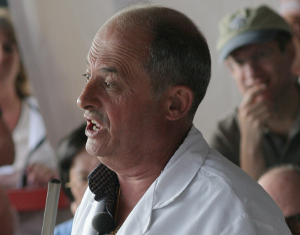 Sens. Susan Collins and Angus King and Reps. Chellie Pingree and Bruce Poliquin sent a letter Monday to U.S. Department of Commerce Secretary Wilbur Ross asking that the 13 groundfish permits forfeited by Carlos Rafael — a New Bedford fisherman who has pleaded guilty to 28 federal counts of tax evasion, falsifying fishing quotas and conspiracy — be redistributed to fishermen throughout the Northeast, not only New Bedford. In their letter, the Maine congressional delegation said that groundfish permits embody a shared resource and, as such, should be returned to groundfish fishermen in “a fair and uniform manner.” click here to read the story 08:53
Sens. Susan Collins and Angus King and Reps. Chellie Pingree and Bruce Poliquin sent a letter Monday to U.S. Department of Commerce Secretary Wilbur Ross asking that the 13 groundfish permits forfeited by Carlos Rafael — a New Bedford fisherman who has pleaded guilty to 28 federal counts of tax evasion, falsifying fishing quotas and conspiracy — be redistributed to fishermen throughout the Northeast, not only New Bedford. In their letter, the Maine congressional delegation said that groundfish permits embody a shared resource and, as such, should be returned to groundfish fishermen in “a fair and uniform manner.” click here to read the story 08:53
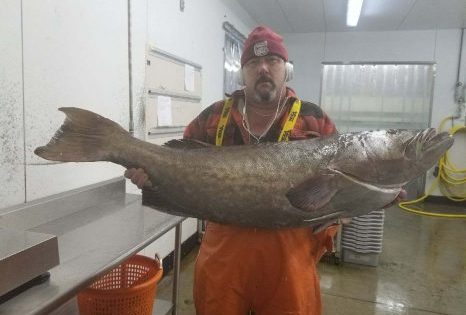
Finding purpose and taking pride in your work, even when it’s cutting fish
As a young boy, David Bruns loved to play on the docks at Shem Creek. He’d always wait to see what the fishing boats and shrimp trawlers unloaded. The salt spray and pluff mud seemed part of his DNA. Born and raised in Mount Pleasant, Bruns looked like he could be a defensive lineman. But he was far more fascinated with fish than football. After his days were done at Wando High School, Bruns found work as a driver for Simmons Seafood. While some workers might complain about the smell or the hours, Bruns believed he was around the business and the people for a reason. After three years, he applied for a position with Crosby’s Seafood. This, too, involved making some deliveries, but there was an additional opportunity. He could learn to cut fish. Bruns was taught the intricacies of boning and filleting fish. If you cut meat, you’re a butcher. If you dissect fish, you’re a fish cutter. click here to read the story 20:18
Cape Sharp Tidal turbine removed from water – Fishermen, “For us, it’s a total vindication,,,”
 The Cape Sharp Tidal turbine has been removed from the Minas Passage, but plans to conduct testing at another location farther down the Nova Scotia coast have been cancelled. The company had planned to move the turbine in April from near Parrsboro to St. Marys Bay to do some short-term hydrodynamic testing. But a mooring line became entangled in it, so the move was postponed. Cape Sharp spokesperson Stacey Pineau said the company now has no plans to resume the testing in St. Marys Bay. The proposed testing had drawn opposition from some fishermen, who said no environmental assessment had been carried out for that work. Colin Sproul, of the Bay of Fundy Inshore Fishermen’s Association, said the removal of the turbine is “a positive development” because the company has not been able to monitor the equipment since the turbine was disconnected from the transmission cable two months ago. click here to read the story 18:52
The Cape Sharp Tidal turbine has been removed from the Minas Passage, but plans to conduct testing at another location farther down the Nova Scotia coast have been cancelled. The company had planned to move the turbine in April from near Parrsboro to St. Marys Bay to do some short-term hydrodynamic testing. But a mooring line became entangled in it, so the move was postponed. Cape Sharp spokesperson Stacey Pineau said the company now has no plans to resume the testing in St. Marys Bay. The proposed testing had drawn opposition from some fishermen, who said no environmental assessment had been carried out for that work. Colin Sproul, of the Bay of Fundy Inshore Fishermen’s Association, said the removal of the turbine is “a positive development” because the company has not been able to monitor the equipment since the turbine was disconnected from the transmission cable two months ago. click here to read the story 18:52
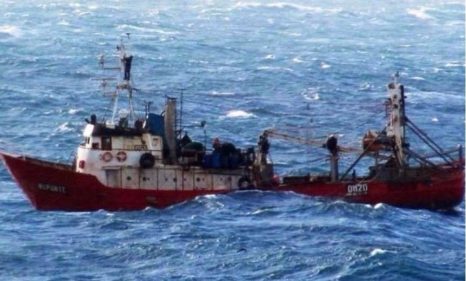
At least three killed as Argentine fishing boat sinks off Chubut
Argentine Coast Guard found Sunday the dead body of two of the nine crew members missing after Saturday’s sinking of a fishing vessel off the coast of Argentina’s southern province of Chubut, it was reported, while one more sailor whose body is yet to be retrieved is also feared dead and seven more are still missing. The fishing vessel Repunte sank about 80 kilometers north of the coast of Rawson, in the Patagonian province of Chubut, it was reported. On Saturday, the Coast Guard managed to rescue two survivors and detected the lifeless body of another. It all began Saturday morning, when the captain of the Argentine-flagged Repunte signaled the Maria Liliana, which sailed 16 nautical miles (about 32 kilometers) apart, that they were abandoning click here to read the story 18:06
New England Fishery Management Council meeting in Portland, Me. June 20 thru 22, 2017
 The New England Fishery Management Council will be meeting at the Holiday Inn by the Bay, Portland, ME., June 20, 2017 –
The New England Fishery Management Council will be meeting at the Holiday Inn by the Bay, Portland, ME., June 20, 2017 –
June 22, 2017 To read the final agenda, click here Register click here to listen live via webinar. 16:52
FISH-NL calls on FFAW President Keith Sullivan to apologize to members
 The Federation of Independent Sea Harvesters of Newfoundland and Labrador (FISH-NL) is calling on Keith Sullivan, president of the FFAW-Unifor, to publicly apologize to his members after an appeal court ruled in favour of scallop harvesters who were deceived by the union. Further, FISH-NL is calling for the resignation of Dave Decker, the union’s secretary-treasurer, who was in charge of the funding, as well as the firing of Jason Spingle, the FFAW staff representative who helped orchestrate the deal. “It’s practically unheard of for a union to be convicted in court of misrepresenting its membership,” says Ryan Cleary, President of FISH-NL. “Inshore harvesters have been saying for years that the FFAW no longer speaks for them — that the union is failing its membership — and this latest court decision proves that.” click here to read the press release 15:59
The Federation of Independent Sea Harvesters of Newfoundland and Labrador (FISH-NL) is calling on Keith Sullivan, president of the FFAW-Unifor, to publicly apologize to his members after an appeal court ruled in favour of scallop harvesters who were deceived by the union. Further, FISH-NL is calling for the resignation of Dave Decker, the union’s secretary-treasurer, who was in charge of the funding, as well as the firing of Jason Spingle, the FFAW staff representative who helped orchestrate the deal. “It’s practically unheard of for a union to be convicted in court of misrepresenting its membership,” says Ryan Cleary, President of FISH-NL. “Inshore harvesters have been saying for years that the FFAW no longer speaks for them — that the union is failing its membership — and this latest court decision proves that.” click here to read the press release 15:59
Can offshore wind revive America’s ports? This town hopes so
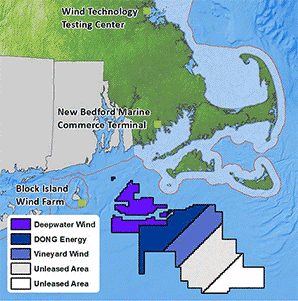 New Bedford – This salt-caked fishing port has been flush with wind prospectors ever since Massachusetts legislators passed a law for massive wind development in the shallow waters south of Martha’s Vineyard.,,, States up and down the Atlantic coast are rushing to become the capital of America’s burgeoning offshore wind industry, hoping the massive turbines will breathe new life into ports mired by a shrinking fishing industry and a flagging industrial base. Maryland officials last month approved renewable energy credits for two developments totaling 368 megawatts off their shores in a bid to transform Baltimore and Ocean City into the industry’s manufacturing and maintenance hub in the Mid-Atlantic (Climatewire, May 12). Lawmakers in New Jersey are counting down the days until Gov. Chris Christie (R) leaves office early next year, when they plan to restore their own credits for offshore wind developments (Energywire, June 9). In New York, Gov. Andrew Cuomo (D) wants to bring 2,400 megawatts of wind power online by 2030 (Energywire, Jan. 11). But few places are betting on offshore wind quite like New Bedford. click here to read the story 11:58
New Bedford – This salt-caked fishing port has been flush with wind prospectors ever since Massachusetts legislators passed a law for massive wind development in the shallow waters south of Martha’s Vineyard.,,, States up and down the Atlantic coast are rushing to become the capital of America’s burgeoning offshore wind industry, hoping the massive turbines will breathe new life into ports mired by a shrinking fishing industry and a flagging industrial base. Maryland officials last month approved renewable energy credits for two developments totaling 368 megawatts off their shores in a bid to transform Baltimore and Ocean City into the industry’s manufacturing and maintenance hub in the Mid-Atlantic (Climatewire, May 12). Lawmakers in New Jersey are counting down the days until Gov. Chris Christie (R) leaves office early next year, when they plan to restore their own credits for offshore wind developments (Energywire, June 9). In New York, Gov. Andrew Cuomo (D) wants to bring 2,400 megawatts of wind power online by 2030 (Energywire, Jan. 11). But few places are betting on offshore wind quite like New Bedford. click here to read the story 11:58
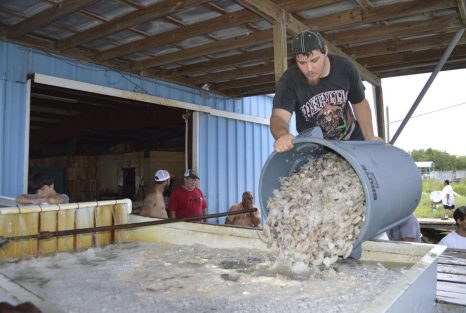
Georgia shrimping season spawns unusual crop: optimism
The rope that dangled down into the hold of the Jo Ann B from a small square opening in the deck suddenly went taut. The winch overhead hummed Friday as it strained, slowly raising a 55-gallon plastic can loaded to the brim with Coastal Georgia’s most-prized saltwater delicacy. The bounty of wild Georgia shrimp swayed high above the boat Friday morning, then swung over to the City Market docks. Jake Wilson took it from there, manhandling the huge bucket of white roe shrimp and dumping the catch into a spacious water trough for processing at the City Market plant on Brunswick’s East River. This process repeats itself many times before Capt. Joe Williams’ Jo Ann B had unloaded its plentiful catch for the day. Entering the third week of the 2017 shrimping season in Georgia’s state waters, the folks who ply the coast to bring the Golden Isles these delicious crustaceans are feeling something strange: optimism. click here to read the story 11:18
FISH-NL recommends Ottawa cancel 2017 sentinel cod program
 The Federation of Independent Sea Harvesters of Newfoundland and Labrador (FISH-NL) recommends that Ottawa cancel the 2017 sentinel cod program, a series of tests fisheries around the province first introduced when stocks were under moratoria. “The sentinel fisheries have become a waste of taxpayers’ money because the model was developed for the moratoria years, and the uncertainties in the data means it has little to no impact when it is used in the assessment model,” says Ryan Cleary, President of FISH-NL. “It appears the catch data may have also been negatively impacted by the resumption of the commercial fisheries and other factors.” click here to read the press release 10:48
The Federation of Independent Sea Harvesters of Newfoundland and Labrador (FISH-NL) recommends that Ottawa cancel the 2017 sentinel cod program, a series of tests fisheries around the province first introduced when stocks were under moratoria. “The sentinel fisheries have become a waste of taxpayers’ money because the model was developed for the moratoria years, and the uncertainties in the data means it has little to no impact when it is used in the assessment model,” says Ryan Cleary, President of FISH-NL. “It appears the catch data may have also been negatively impacted by the resumption of the commercial fisheries and other factors.” click here to read the press release 10:48
Opinion: Rafael’s assets could fund observer program
 Any discussion of fishery management nowadays — official and casual alike — is likely to include musings on what should happen to the assets forfeited by Carlos Rafael as punishment for his recent crimes. Mr. Rafael pleaded guilty to charges related to his falsifying landing records and laundering cash, and is scheduled to be sentenced in late July. The courts are working to untangle the IRS and fisheries crimes, dealing with them at one time. A careful distinction between tax penalties and fishing penalties must be made. The penalties for the tax crimes will be arrived at through IRS rules and laws. The penalties for fisheries crimes are stipulated in NOAA regulations. They provide great latitude in application, from a slap on the wrist to a permanent end of fishing for Carlos Seafood. The defense is making an argument that Mr. Rafael’s influence on the fishery is so important — due to his size — that economic harm to others would be too great if he were to be sanctioned too severely. click here to read the op-ed 08:42
Any discussion of fishery management nowadays — official and casual alike — is likely to include musings on what should happen to the assets forfeited by Carlos Rafael as punishment for his recent crimes. Mr. Rafael pleaded guilty to charges related to his falsifying landing records and laundering cash, and is scheduled to be sentenced in late July. The courts are working to untangle the IRS and fisheries crimes, dealing with them at one time. A careful distinction between tax penalties and fishing penalties must be made. The penalties for the tax crimes will be arrived at through IRS rules and laws. The penalties for fisheries crimes are stipulated in NOAA regulations. They provide great latitude in application, from a slap on the wrist to a permanent end of fishing for Carlos Seafood. The defense is making an argument that Mr. Rafael’s influence on the fishery is so important — due to his size — that economic harm to others would be too great if he were to be sanctioned too severely. click here to read the op-ed 08:42
On the docks, no sympathy for deadlocked lawmakers
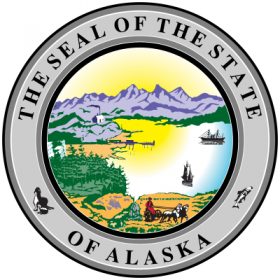 It’s a good thing our boats don’t have wheels,” Delay said, “because if they did, we’d be driving them through the front door of the Capitol.” Though he was speaking figuratively, Delay wasn’t being hyperbolic. Juneau gillnetters are frustrated. They start their season Sunday under uncertain seas: Not knowing what could happen in the event of a July 1 government shutdown, salmon management could be curtailed or shut down during the most lucrative part of the gillnet season. The Alaska Department of Fish &Game sets time limits and other regulations for salmon fishermen to ensure enough fish get upriver and past nets to spawn. Without those regulations, fishermen won’t be allowed to fish. click here to read the story 08:05
It’s a good thing our boats don’t have wheels,” Delay said, “because if they did, we’d be driving them through the front door of the Capitol.” Though he was speaking figuratively, Delay wasn’t being hyperbolic. Juneau gillnetters are frustrated. They start their season Sunday under uncertain seas: Not knowing what could happen in the event of a July 1 government shutdown, salmon management could be curtailed or shut down during the most lucrative part of the gillnet season. The Alaska Department of Fish &Game sets time limits and other regulations for salmon fishermen to ensure enough fish get upriver and past nets to spawn. Without those regulations, fishermen won’t be allowed to fish. click here to read the story 08:05
In a Bering Sea battle of killer whales vs. fishermen, the whales are winning
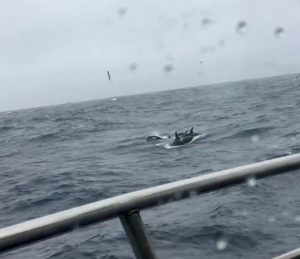 In the Bering Sea, near the edge the continental shelf, fishermen are trying to escape a predator that seems to outwit them at every turn, stripping their fishing lines and lurking behind their vessels. The predators are pods of killer whales chasing down the halibut and black cod caught by longline fishermen. Fishermen say the whales are becoming a common sight — and problem — in recent years, as they’ve gone from an occasional pest to apparently targeting the fishermen’s lines. Fishermen say they can harvest 20,000 to 30,000 pounds of halibut in a single day, only to harvest next to nothing the next when a pod of killer whales recognizes their boat. The hooks will be stripped clean, longtime Bering Sea longliner Jay Hebert said in a phone interview this week. Sometimes there will be just halibut “lips” still attached to hooks — if anything at all. click here to read the story 07:35
In the Bering Sea, near the edge the continental shelf, fishermen are trying to escape a predator that seems to outwit them at every turn, stripping their fishing lines and lurking behind their vessels. The predators are pods of killer whales chasing down the halibut and black cod caught by longline fishermen. Fishermen say the whales are becoming a common sight — and problem — in recent years, as they’ve gone from an occasional pest to apparently targeting the fishermen’s lines. Fishermen say they can harvest 20,000 to 30,000 pounds of halibut in a single day, only to harvest next to nothing the next when a pod of killer whales recognizes their boat. The hooks will be stripped clean, longtime Bering Sea longliner Jay Hebert said in a phone interview this week. Sometimes there will be just halibut “lips” still attached to hooks — if anything at all. click here to read the story 07:35
Western Pacific Regional Fishery Management Council meeting Honolulu, HI. June 19-22, 2017
 The Western Pacific Regional Fishery Management Council convenes , June 19-22, 2017 at Fuller Hall, YWCA, 1040 Richards St., Honolulu. Fishermen, other stakeholders and members of the public are invited to participate in the meeting and decision-making for federally managed fisheries in the offshore waters of Hawai’i, the Territories of American Samoa and Guam, Commonwealth of the Northern Mariana Islands (CNMI) and US Pacific Remote Island Areas. click here for information 22:34
The Western Pacific Regional Fishery Management Council convenes , June 19-22, 2017 at Fuller Hall, YWCA, 1040 Richards St., Honolulu. Fishermen, other stakeholders and members of the public are invited to participate in the meeting and decision-making for federally managed fisheries in the offshore waters of Hawai’i, the Territories of American Samoa and Guam, Commonwealth of the Northern Mariana Islands (CNMI) and US Pacific Remote Island Areas. click here for information 22:34
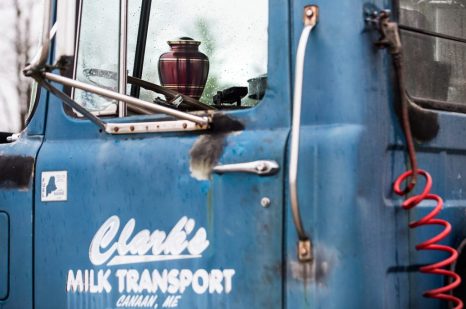
Death of a dairyman: In the network of Maine farm families, Richard ‘Butch’ Clark was a common thread
On a gloomy Saturday afternoon in early May, the Canaan Fire Department shut down Route 2 in Canaan for a steady procession of tractors, dump trucks and vintage farm equipment. Up front was Karen Clark in a 1979 R model Mack truck. The Mack had been sitting in a field awhile — seven years, she figures — but she made sure it would start and had given it a good wash because her dad loved the “iron.” This particular truck, one he’d used in the 1990s, had been his pride and joy because it never broke down. Her father’s ashes were in a red urn on the front seat next to her. The tractor parade to Fairview Cemetery, nearly 30 vehicles strong, might not be what you’d expect for a dairy man of steady modesty, but Richard Arthur “Butch” Clark had been hauling milk on these roads since 1968 and a driving tribute seemed in order. “This is Dad’s life,” Karen Clark said. Her Aunt Kathy, Butch’s sister, agreed. “That’s our redneck send-off,” Kathy Quirion said. “Those are the kind of people he touched. Truck drivers and farmers and people with tractors.” click here to read the story 16:33
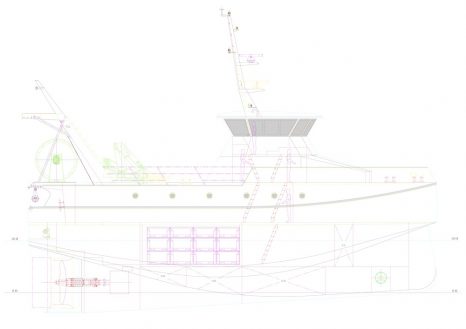
Blue Wave: future fishing vessel
Following a passion for the sea and going fishing at seventeen, Jean-Baptiste Goulard only in his early twenties when the owner he was working for at the time gave him the chance he needed to own his own boat.Now he can see that change is needed and has been immersed in the Blue Wave project to develop a new vessel to take the place of the traditional groundfish trawler fishing from Brittany, and the first of these new trawlers is about to start taking shape.,,, Now 34, he has been the skipper and owner of his own trawlers since he was 23, and now the three trawlers employ seventeen people directly and support another dozen jobs ashore. Coppelia, Pax Vobis and Harmonie fish from Loctudy in Brittany, and with all three having been built between 28 and 32 years ago, he feels the time has come to consolidate and renew them. click here to read the story 13:02
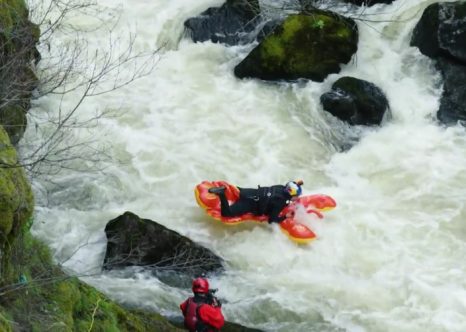
Rafa Ortiz celebrates International Lobster Day, runs 70-foot falls on inflatable lobster
Most people celebrate international lobster day by … well, most people probably don’t actually celebrate international lobster day. Rafa Ortiz, however, chose to mark this year’s día de la langosta by descending a 70-foot waterfall on a lobster-shaped pool toy. Ortiz, the star of the documentary film Chasing Niagara, emphasized the importance of this latest achievement, noting that Washington State’s Outlet Falls “has never been run before in a pool toy.” Watch the video here. 12:39
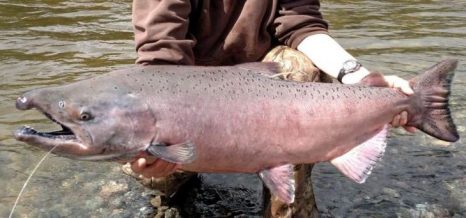
State of the kings
For the first time in years, king salmon are showing signs of making a stronger return to the vast wilderness surrounding Alaska’s urban heartland. While Panhandle runs continue to struggle, kings to the north appear to be coming back in reasonable numbers. No records are being broken, but there are enough fish the Alaska Department of Fish and Game has liberalized fishing in two of the state’s most popular roadside king salmon drainages – the Kenai River south of Anchorage and tributaries to the Copper River east of the state’s largest city. A near disaster had been forecast on the latter river, a big, muddy, glacial stream draining 26,500 square miles of Alaska near the Canadian border. A return of only 29,000 fish was expected, and with the spawning goal set at 24,000, the state imposed a host of restrictions on the fishery before it even began. Sport fishing was closed. Subsistence fishermen were restricted to a seasonal limit of only two Chinook, the more common Lower 48 name for kings. And commercial fishermen faced major reductions in fishing time and closures of areas that have in the past produced the biggest king catches. click here to read the story 09:37
On this special day, take time to thank your dad
 Father’s Day – which is Sunday – almost seems to be an afterthought, compared to Mother’s Day. It’s like someone said, “We ought to do Father’s Day, too. It’ll give us a chance to sell some shirts and ties.” Father’s Day began in Europe around 1500 as St. Joseph’s Day, honoring the earthly father of Jesus. Spanish and Portuguese Catholics brought the tradition to the New World. Moms are important. They did carry us around for nine months … but Dad had something to do with that, too. Some fathers aren’t very good fathers, and others aren’t around at all, but a good dad is a treasure and can influence our lives in a way that we might not realize until he is no longer around to thank him. click here to read the story, and Happy Fathers Day.
Father’s Day – which is Sunday – almost seems to be an afterthought, compared to Mother’s Day. It’s like someone said, “We ought to do Father’s Day, too. It’ll give us a chance to sell some shirts and ties.” Father’s Day began in Europe around 1500 as St. Joseph’s Day, honoring the earthly father of Jesus. Spanish and Portuguese Catholics brought the tradition to the New World. Moms are important. They did carry us around for nine months … but Dad had something to do with that, too. Some fathers aren’t very good fathers, and others aren’t around at all, but a good dad is a treasure and can influence our lives in a way that we might not realize until he is no longer around to thank him. click here to read the story, and Happy Fathers Day.
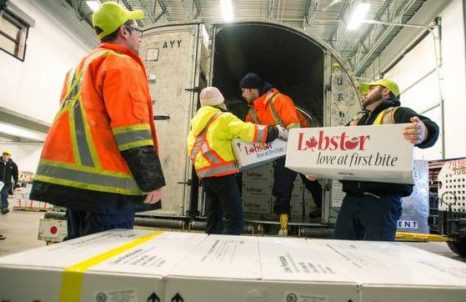
Not your grandfather’s fishery
The harvesting is so different — bigger boats, bigger fishing effort, deeper-water fishing, so much further from shore on average, more ambitious in all respects. The boats themselves are equipped with everything under the sun to make the task more manageable. The knowledge is much more substantial. We live in the Facebook Generation. Everything is visible and transparent, whether publishing a newspaper or determining the value of a lobster, there are absolutely no secrets. And fish harvesters make it their business to know what a lobster is selling for in Thunder Bay on a Saturday night. The world is smaller — direct flights from Halifax to Europe and Asia make transit time for premium quality fisheries a fraction of what was required previously. click here to read the op-ed by Stewart Lamont, managing director of Tangier Lobster Company 19:26







































